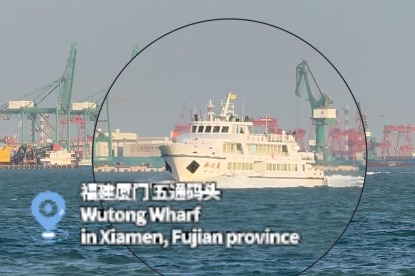Health reform and its relevance for Indonesia

China has implemented large-scale health reforms over the past few decades to make healthcare accessible and affordable to all, and improve its quality and economic efficiency. The 2009 health reform program was a turning point as it widened the health insurance plan, integrated formerly disjointed services and included significant health infrastructure investments. Today, basic health insurance covers more than 95 percent of the Chinese people, significantly reducing out-of-pocket payments and health inequality.
These reforms are more than technical accomplishments; they have a political nature. The Chinese government has been consistently implementing health reforms within the overall context of the country's supreme development targets, which include economic modernization and social fairness. The "Healthy China 2030" plan represents a shift to an active system, which focuses on prevention, health promotion, and chronic condition management, contrary to the old reactive, treatment-based system. This incorporation makes it clear health is not a secondary issue but placed firmly at the center of national development.
China is also committed to protecting environmental health. Considering the risks posed by rapid industrialization, the country has implemented strict environmental policies, including the Environmental Protection Law, and launched campaigns to reduce air and water pollution. For example, the Air Pollution Prevention and Control Action Plan has significantly reduced PM2.5 levels in cities such as Beijing. Despite the gaps in implementation, especially in rural areas, these efforts reflect the government's active and integrated commitment to public health.
Challenges, however, remain. Inconsistencies in policy implementation at the local level often result from differences in governance, because occasionally economic interests related to environmental and health issues prevail.
Today, Indonesia is at a crossroads in developing its health system. The Jaminan Kesehatan Nasional program has made significant strides toward universality but still faces challenges like healthcare fragmentation, uneven quality and underinvestment for disease prevention and control. To break down institutional silos and bring about integration, strong government political commitment is needed.
China's experience cannot be attributed to a single policy but to the balanced interaction between insurance reform and overall national development plans, including the government's focus on community-level health infrastructure. Village doctors and grassroots clinics are an integral part of the healthcare system in China. Early diagnosis and ongoing care by the local clinics are important determinants for an equitable and vibrant healthcare system. In Indonesia, developing operational capacity for local health centers could reap transformative benefits, specifically in economically underprivileged areas like eastern Indonesia.
Health diplomacy can be an important part of Indonesia's international identity, particularly as the country strives to bring the rewards and increased expectations tied to its "Golden Indonesia 2045" aspirations to fruition. The development of an inclusive, equitable and connected health system requires not only resources but also strategic direction, cross-ministerial coordination and governmental resolve.
As part of Indonesia's research and innovation environment, this circumstance requires greater coordination among ministries, more research and development for health, and a commitment to policymaking based on long-term rewards over short-term returns.
Indonesia's incorporation of technology and diplomacy into its health governance system further supports this claim. The use of artificial intelligence for health surveillance, coupled with the Digital Silk Road program, shows how public health can be harnessed to promote greater strategic interests. For Indonesia, integrating health interests into its digitalized transformation and foreign policy can help make it a regional front-runner for health innovation and resilience.
In addition, the Chinese experience highlights the role of leadership in unifying fractured institutions and sustaining the momentum for change. Whether the issue is tobacco control or pandemic control, the Chinese leadership's ability to inspire the people into action demonstrates the importance of coordinated and effective governance. As Indonesia moves toward its independence centenary in 2045, it is crucial that it reforms its healthcare system in a way that changes its nature from a policy aspiration to a national mission.
The views don't necessarily reflect those of China Daily.

The author is head of the Bureau for Planning and Finance and a senior researcher at the National Research and Innovation Agency in Indonesia.
Today's Top News
- Lai's 'separatist fallacy' speech rightly slammed
- Xi's message for New Year widely lauded
- Swiss bar fire kills around 40, injures more than 110
- New Year's address inspiring for all
- Xi congratulates Science and Technology Daily on its 40th anniversary
- Xi congratulates Guy Parmelin on assuming Swiss presidency






























